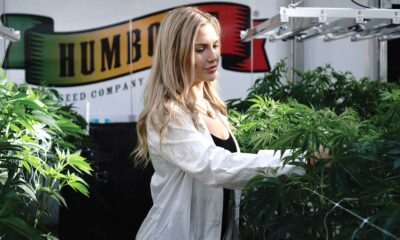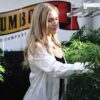
Politics
Native Americans Resist Cannabis in Washington
The burgeoning marijuana industry in Washington will find no allies in The Yakama Nation tribe of Native Americans.
According to a report by Reuters earlier this week: The roughly 10,000-member Yakama Nation has already asserted sovereignty to keep cannabis outlawed on 1.2 million acres of reservation land it controls in central Washington’s Yakima Valley.
In addition, the Yakama are also seeking to prevent pot cultivation and sales from a 10.8 million acre stretch of the state it ceded under an 1855 treaty with the U.S. government, but where the tribe still holds hunting, food-gathering and fishing rights.
The Chairman of Yakama Nation Harry Smiskin, told the Seattle PI:
“The Yakama have been a major part of the Pacific Northwest from time immemorial. In European terms, since the black robes came to our lands and various foreign ships made it to our waters. In United States terms, since 1855 when the United States signed a treaty with the Yakama Nation that was Senate ratified as 12 Stat 951.
The citizens of the state of Washington do not have the authority to vote what happens on Yakama lands. It is that simple…We do not want our people, or anyone else, to use, grow or sell marijuana on our lands. We have had a long and unpleasant history with marijuana — just as we have had with alcohol. We fight them both on our lands.”
The unpleasant history with alcohol to which Smiskin refers to is undeniable. In addition to the emotional and physical tolls in which alcoholism have burdened the Native American and Alaskan Native populations, this problem has also led to an unfortunate stereotype of vast alcoholism within these peoples.
A 1995 study cited in Volume 22 of Alcohol Health& Research noted the rate of alcohol-related deaths for Native American men as high as 26.5 percent. A 2008 report from the CDC echoes this tragic statistic, reporting one in ten Native American and Alaskan Native deaths are alcohol related, and while marijuana substance addiction admissions were less than half of alcohol related ones, they were still the second highest substance treatments Native American sought out in 2004.
Given this tempestuous history, it’s understandable why the Yakama Nation would want to keep marijuana off their ancestral lands. The tribe has already filed over 1,000 additional objections with state and federal governments against marijuana license applicants.
However, the tribe may find issue with this as noted by American Civil Liberties Union Washington criminal justice director Alison Holcomb in the Associated Press, “The federal government at this time has shown it has no intention of trying to stop the law.”
Smiskin concludes: “I cannot tell you what to do on state lands in Seattle or elsewhere — I can tell you how it is going to be on Yakama Lands. The use of marijuana is not a part of our culture or religions or daily way of life. Nor is it one of our traditional medicines. Please respect our lands and our position.”
The Washington Liquor Control Board has established it would not issue a marijuana license to any business located on federal lands, including Indian reservations. This rule does not currently apply to ceded lands however. The first recreational marijuana dispensaries became licensed by Washington State on March 5, retail stores are expected to open in late June.
























